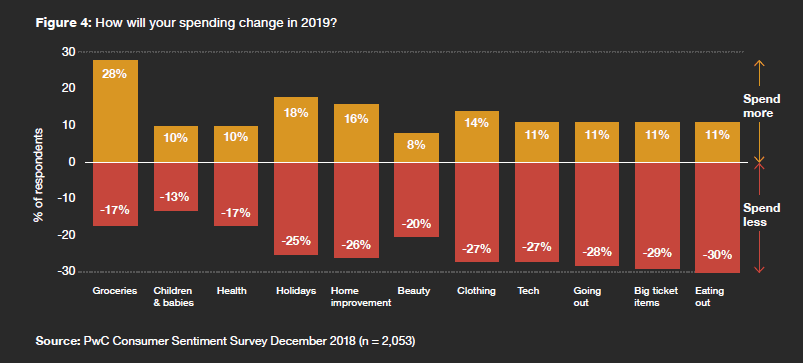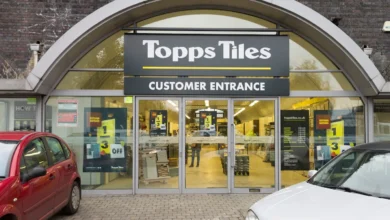Majority of shoppers say Brexit won’t affect spending

Register to get 1 free article
Reveal the article below by registering for our email newsletter.
Want unlimited access? View Plans
Already have an account? Sign in
A survey of over 2,000 consumers conducted by PwC has shown that more than 60% of respondents said Brexit will not and has not affected how much they will spend for the year ahead.
The findings in PwC’s 2019 Retail Outlook revealed respondents in the north east of the country were the least concerned, with 70% saying their spending habits will be unaffected by Brexit. Londoners are the most concerned, with 41% saying they have already changed their spending, and a further 14% saying they will do in 2019. For those consumers who said they would change their spending as a result of Brexit, half said they would buy less, and a third said they would postpone big ticket purchases.
The report also showed a period of continued slow or no growth for UK retailers, with those looking to succeed needing a strategy to steal market share.


According to PwC’s latest economic forecasts, UK GDP is expected to grow 1.4% this year. However, growth in all three of the world’s major trading blocs – China, the US and the Eurozone are expected to slow.
Real earnings are projected to continue increasing and alongside a slowdown in retail price inflation, PwC said this has “put more money in shoppers’ pockets”. The latest ONS estimates found retail sales grew by 4.3% between November 2018 and January 2019 compared with the previous year.
PwC added that UK retailers were having to adjust to the ‘new normal’ of a subdued trading environment, meaning the only way to achieve growth was by taking market share and adapting to the more conscientious shopper.
The report said in order to increase market share, retailers should focus on investing in technology, specifically using AI and data analytics; transform supply chains with the use of digital technologies to save costs and review corporate structure to explore if M&A, divestments or partnerships/collaborations could improve health.
Lisa Hooker, head of consumer markets at PwC, said: “When speaking to consumers in recent years, they’ve consistently told us their main priorities for increased spending are groceries and holidays. This year, these categories remain important but we are seeing subtle changes for the younger generation who are prioritising spending money on their homes, health and beauty.
“What is consistent across the board is that consumers are looking to get more for their money, with almost a third saying they will shop around more and buy more items on promotion. Pressure on consumer spending will impact the little luxuries – such as eating out – with just over a third of people saying they plan to cook at home more.”







